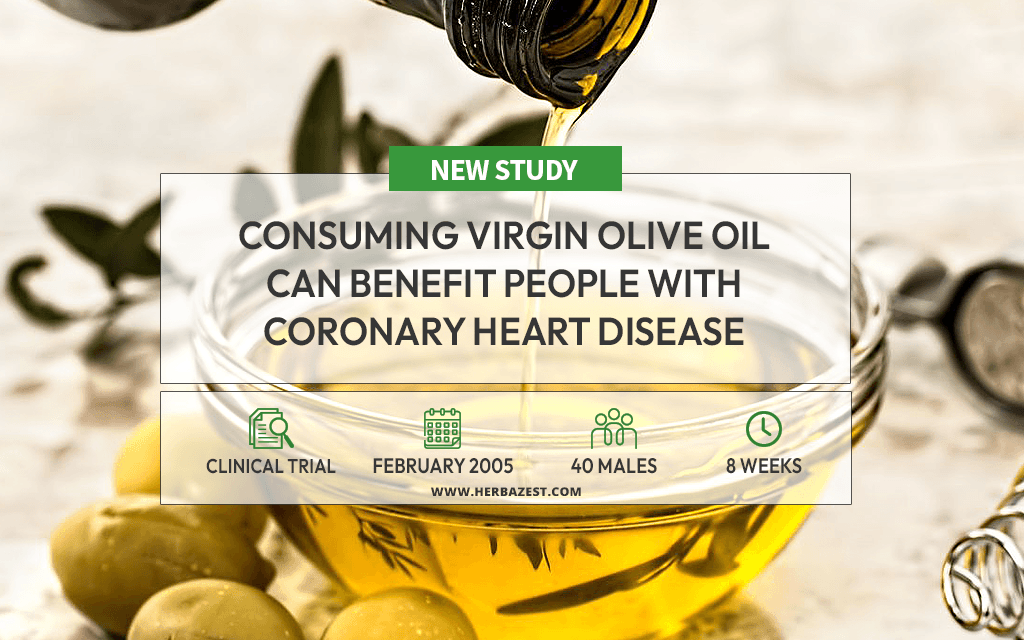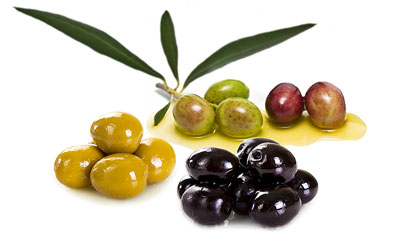Some of the most important risk factors for coronary heart disease include high blood pressure, high low-density lipoprotein (LDL) cholesterol, and low high-density lipoprotein (HDL) cholesterol.
Optimized dietary and lifestyle habits can significantly improve the outcomes of conventional treatment outcomes. As a principal fat source in a Mediterranean diet, the oil derived from olives has been shown to have beneficial effects on the development of heart disease.1
This study was conducted to examine the antioxidant and anti-hypertensive effects of olive oil, using two olive oils with different concentrations of phenolic compounds.
The Study
This placebo-controlled, crossover, randomized trial was a collaboration between researchers from various universities in Barcelona, Spain. Its participants were 40 males with stable coronary heart disease and the average age of 67.
Researchers selected two types of olive oil to be used in this trial: 50 mL refined olive oil (0.62 mg of phenolic compounds per dose) and 50 mL virgin olive oil (6.53 mg of phenolic compounds per dose).
Treatment began with a 2-week washout period, during which refined olive oil was used. Then, participants consumed virgin olive oil over three meals per day for three weeks, followed by refined olive oil three times daily for another three weeks.
Various assessments, including anthropometrics, blood pressure, and laboratory tests, were done before, during, and after the study.
The Results
After the virgin olive oil treatment, participants showed substantial improvements in several oxidative and anti-oxidative biomarkers, including lower plasma oxidized LDL and lipid peroxide levels as well as higher glutathione peroxidase activities.
In hypertensive patients, there was a significant decrease in systolic blood pressure after virgin olive oil treatment.
What Does this Mean?
As seen in the results of this trial, consumption of a phenolic-rich virgin olive oil can benefit people with coronary heart disease. Researchers suggest that its rich phenolic content reduces oxidative stress and increases antioxidant activity.
These findings encourage using it as an additional, complementary intervention to prescribed conventional treatment.
Other herbs that offer heart-protective benefits are garlic, cayenne, and
sunflower.
Sources
- Atherosclerosis, Antioxidant effect of virgin olive oil in patients with stable coronary heart disease: a randomized, crossover, controlled, clinical trial, 2005
Footnotes:
- Revista Española de Cardiología. (2013). MediterraneanDiet and Cardiovascular Prevention. Retrieved October 28, 2020 from https://www.revespcardiol.org/en-mediterranean-diet-cardiovascular-prevention-articulo-S1885585713001801





